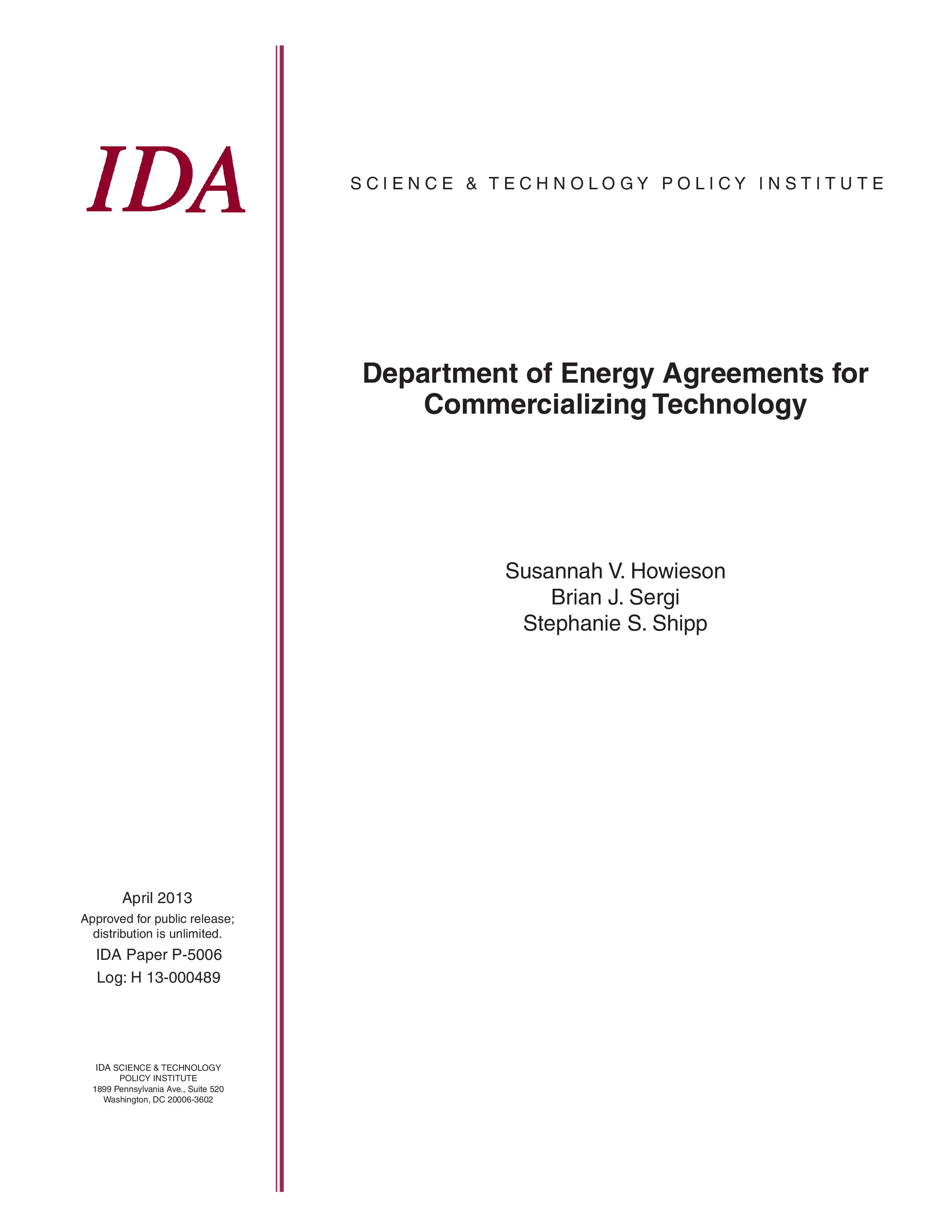In December 2011, the Department of Energy (DOE) announced a 3-year pilot program for Agreements for Commercializing Technology (ACT), a new contracting mechanism to facilitate the national laboratories' ability to partner with industry on research and technology transfer projects. IDA Science and Technology Policy Institute researchers interviewed individuals from DOE national laboratories, both participating and not participating in the pilot, and DOE headquarters. The ACT mechanism uses contracting terms that are better aligned with industry practice, includes a flexible framework for negotiating intellectual property rights, and provides participants with the ability to more easily collaborate with multiple parties. Many of the stakeholders interviewed believe these changes will encourage a closer, more productive relationship between the laboratories and commercial sector. However, not all of the laboratories were eager to embrace the new mechanism, and are cautious about the risks that it brings. Furthermore, there is debate over the issue of using Federal funding for their work with the laboratories, which is currently prohibited under ACT. DOE requires the laboratories to report on metrics related to use of the mechanism but some stakeholders feel that additional qualitative and quantitative metrics are needed. Despite the many benefits ACT offers, the success of the pilot may be jeopardized by its lack of implementation at several of the participating laboratories.

